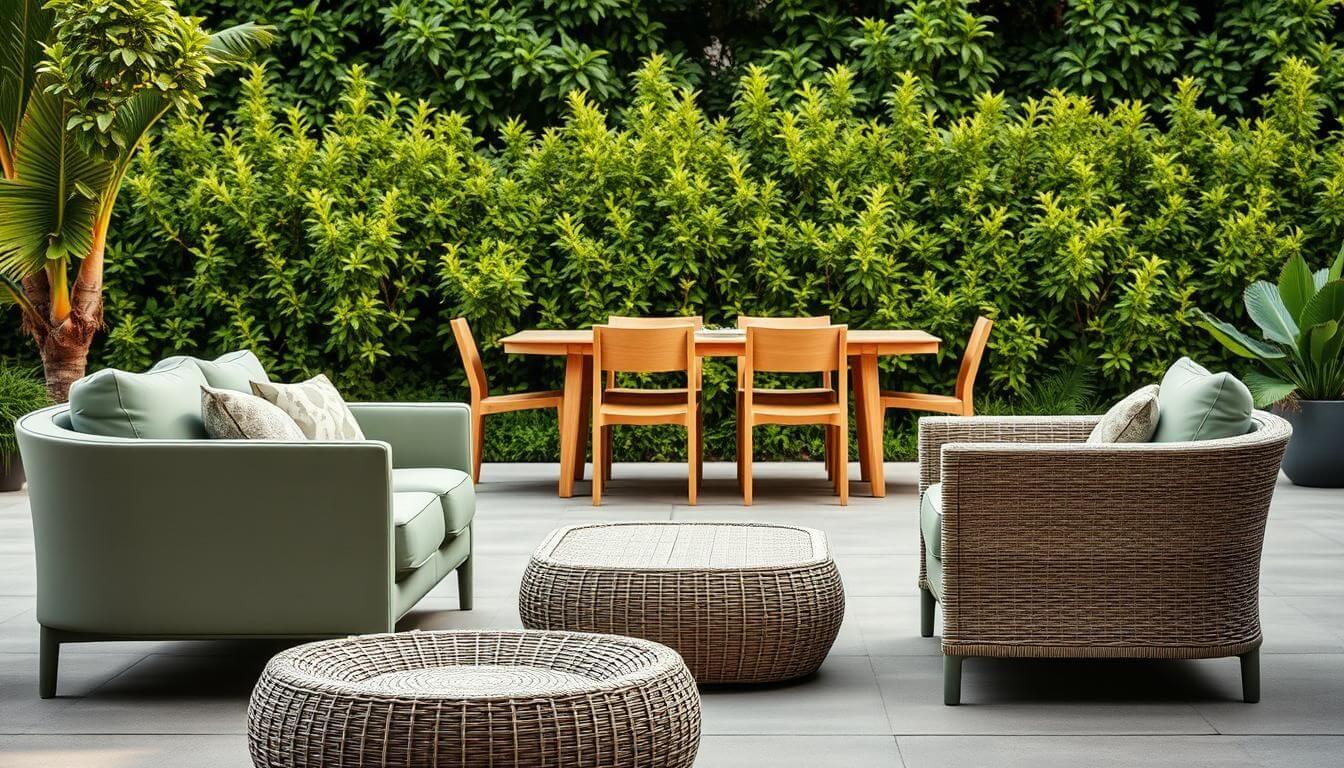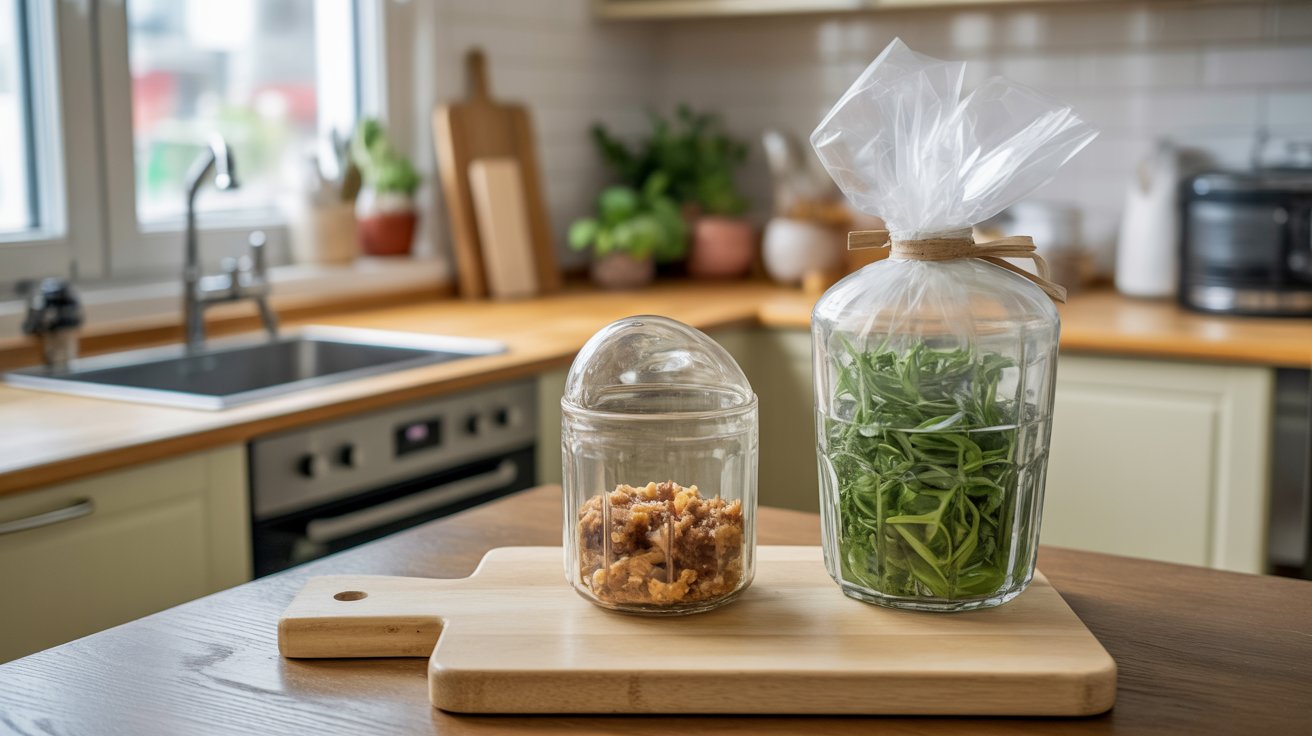Transform Your Life with Zero Waste Living: Practical Advice

Zero waste living is more than recycling. It’s a way of thinking that makes daily choices simpler and better for the planet. By making small changes, you can reduce waste, save money, and live healthier. This guide will show you how to start today.
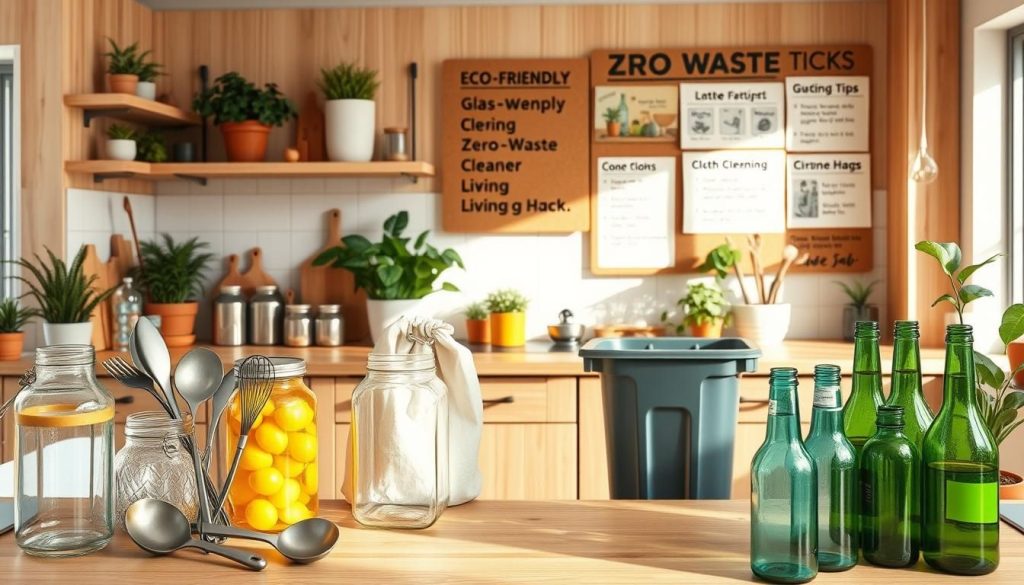
Picture a life with less waste, more time, and peace of mind. Zero waste living turns daily habits into ways to protect the planet and improve your health. Learn how to make your lifestyle more sustainable.
Key Takeaways
- Zero waste living starts with mindful consumption and reusable items.
- Reducing waste lowers household costs and minimizes landfill contributions.
- Small swaps, like reusable bags or containers, build toward bigger environmental impact.
- This lifestyle fosters creativity in reusing items and simplifying possessions.
- Community and online resources provide support for sustainable choices.
Understanding Zero Waste Living and Its Benefits
Zero waste living is more than a trend. It’s a mindset that aims to reduce waste and value resources. It encourages us to think before we consume, aligning our daily habits with nature’s cycles. By embracing this philosophy, we can lessen our impact on the environment and find ways to simplify our lives.
Zero Waste Living Fundamentals
Core principles guide this journey:
- Refuse single-use items like plastic bags and bottles.
- Reuse items creatively instead of discarding them.
- Recycle materials properly through local programs.
- Rot (compost) food scraps and natural materials.
Key Benefits of Embracing a Sustainable Lifestyle
Practices like recycling or composting help reduce landfill waste and save natural resources. Buying less and reusing more can also save money. Plus, avoiding toxic products makes our homes cleaner and healthier.
These changes don’t just benefit us. They inspire others in our communities to make similar changes.
Environmental Impact and Personal Growth
Reducing waste helps fight pollution and protects ecosystems for the future. On a personal level, zero waste living sharpens our problem-solving skills and connects us to our daily choices. Small actions, like using reusable containers or buying secondhand, become habits that boost our confidence and clarity.
This shift towards a sustainable lifestyle is more than just about reducing waste. It’s about finding new meaning and responsibility in our lives.
Practical Zero Waste Tips for Everyday Life
Starting zero waste tips doesn’t mean changing your whole life. Begin with small steps to cut down on waste. These waste reduction methods blend into your daily life, making it easy to be green.
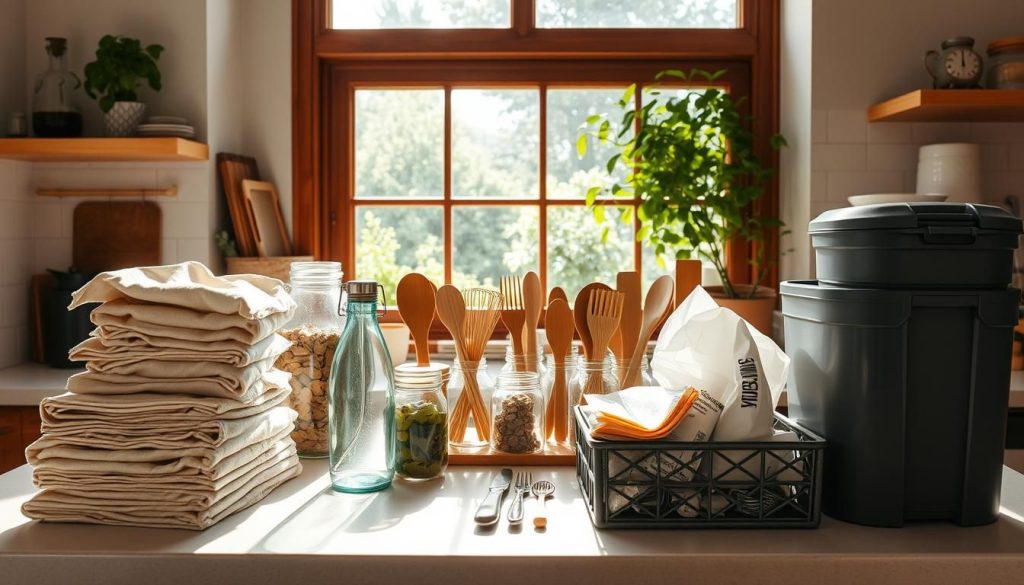
Simple Swaps to Reduce Waste
Start by making simple swaps to avoid single-use items:
- Swap paper towels for cloth napkins.
- Use reusable containers instead of plastic wrap.
- Carry a stainless steel straw for drinks.
Incorporating Eco-Friendly Practices
| Traditional Item | Eco-Friendly Alternative | Benefits |
| Disposable razors | Security razors | Long-lasting blades, 90% less waste |
| Plastic water bottles | Insulated reusable bottles | Reduces plastic use by 365+ bottles/year |
Budget-Friendly Waste Reduction Methods
Here are some affordable ways to reduce waste:
- Make your own cleaning sprays with vinegar and water.
- Buy groceries in bulk to reduce packaging waste.
- Fix or give away items instead of throwing them away.
These changes can turn your daily habits into eco-friendly ones. Small actions can make a big difference, showing that living sustainably is possible for all.
Zero Waste Solutions for a Sustainable Home
Starting a zero waste home is all about making small changes. Every room in your house can help reduce waste and adopt green habits. These tips make living sustainably easy, from the kitchen to your closet.
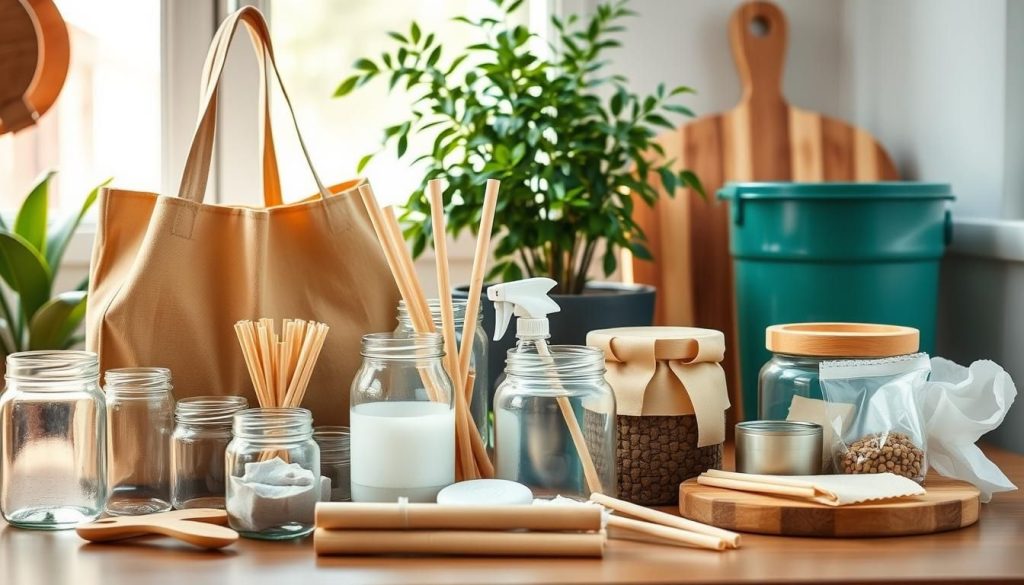
- Use reusable containers for snacks, leftovers, and lunchboxes. Swap plastic wrap for beeswax wraps or silicone lids.
- Make your own cleaners with vinegar, baking soda, and lemon. Store in recycled bottles to cut down on chemical waste.
- Compost food scraps with a countertop bin. Services like CompostNow can help households start backyard systems.
Give old furniture a new life instead of throwing it away. Websites like ThredUP or local swap groups help keep items out of landfills. Choose energy-efficient appliances—look for Energy Star labels on fridges or washing machines to slash electricity use.
Smart storage solutions like stackable bins or under-sink organizers maximize space while minimizing clutter. Opt for multi-use items like cloth napkins or mesh produce bags. Small choices add up, creating a home that aligns with eco-conscious values without sacrificing comfort.
Building a Green Living Lifestyle With Zero Waste Strategies
Starting with green living tips means making small, consistent changes. Turn sustainability into a habit by adopting new routines. For example, use reusable containers for leftovers and choose to repair items instead of buying new ones. These actions reduce waste and save money.
Effective Sustainable Living Habits
- Keep a kitchen compost bin to recycle food scraps into garden soil.
- Wash and reuse plastic bags for storage instead of tossing them.
- Shop at bulk stores like Bulk Barn to avoid single-use packaging.
Implementing Green Community Practices
Join local initiatives to make a bigger difference. Organize a neighborhood swap event or help with park cleanups. Use platforms like Freecycle to share items you no longer need. Work with schools to teach kids green living tips through practical projects.
Work together with neighbors to create community gardens. When we join forces, our individual efforts become a powerful movement. This shows that sustainability grows stronger when we work together.
Eco Conscious Living Ideas and Zero Waste Resources
Start making a difference with guides and tools that make eco-friendly living easy. These resources give you steps to live more sustainably and connect with others who care.
Curated Zero Waste Living Guides
Here are some essential reads:
- Zero Waste Home by Bea Johnson: A detailed guide to cut down on household waste.
- My Plastic-Free Life: Tips and blogs to help you avoid single-use plastics.
Unlocking Sustainable Living Resources
Check out this comparison table:
| Resource | Description | Website |
| Earth911 | Recycling tips and directories for 50 states | earth911.com |
| Sustainable Jungle | Find local zero-waste stores | sustainablejungle.com |
| Plastic Oceans | Watch documentaries on plastic’s impact | plasticoceans.org |
Leveraging Zero Waste Solutions Online
Get support from these communities:
- Reddit’s r/zerowaste for daily tips
- Join Facebook groups like “Zero Waste U.S. Chapters”
- Use apps like Too Good To Go to track your progress
Conclusion
Small choices can lead to big changes. Using reusable bags, compost bins, or making DIY cleaners helps a lot. Zero waste is about making progress, not being perfect. Start with one change and keep going.
Look for help from places like the EPA’s recycling guides or local cleanups. Websites like Zero Waste Home and Bea Johnson’s blog have lots of free tips. Sharing your efforts on social media or with friends can make a bigger difference.
Sustainability is a long-term effort. Celebrate every small win, like avoiding a plastic item or inspiring someone else. These actions help reduce pollution, save money, and make the world healthier.
Start today by trying something new. Swap a plastic bottle for a refillable one, join a swap group, or try a zero-waste recipe. Every choice you make brings us closer to a waste-free future.
FAQ
What are some simple zero waste tips I can start with today?
Start by using a reusable grocery bag and bringing your own coffee cup. Choose bulk bins for items without packaging. These small changes help reduce waste and support the environment.
How do I implement zero waste living in my home?
Begin by decluttering and figuring out what can be recycled or composted. Use energy-efficient appliances and create a compost bin. Invest in reusable products to make your home more sustainable.
Can you share some budget-friendly waste reduction methods?
Yes! Save money by making your own cleaning supplies and repurposing items. Choose second-hand goods instead of new ones. These steps help reduce waste and support a green lifestyle.
What are some effective sustainable living habits?
Effective habits include meal planning to cut down on food waste. Use public transport or bike instead of driving. Avoid single-use plastics by making mindful choices. These actions promote eco-friendly living.
Where can I find resources for zero waste solutions?
Many online platforms and local groups focus on zero waste. Websites like Zero Waste Home offer guides. Local libraries have books on sustainable living. These resources help you adopt eco-friendly habits.
What role does community play in zero waste living?
Community is vital for zero waste living. Join groups that share sustainable practices for support and inspiration. Getting involved in clean-ups or gardening projects helps us care for our environment.
How can I effectively reduce waste while I’m busy?
Keep it simple! Meal prep on weekends and use a good reusable water bottle. Set up recycling and composting systems at home. Small, consistent actions can greatly reduce waste, even with a hectic schedule.

